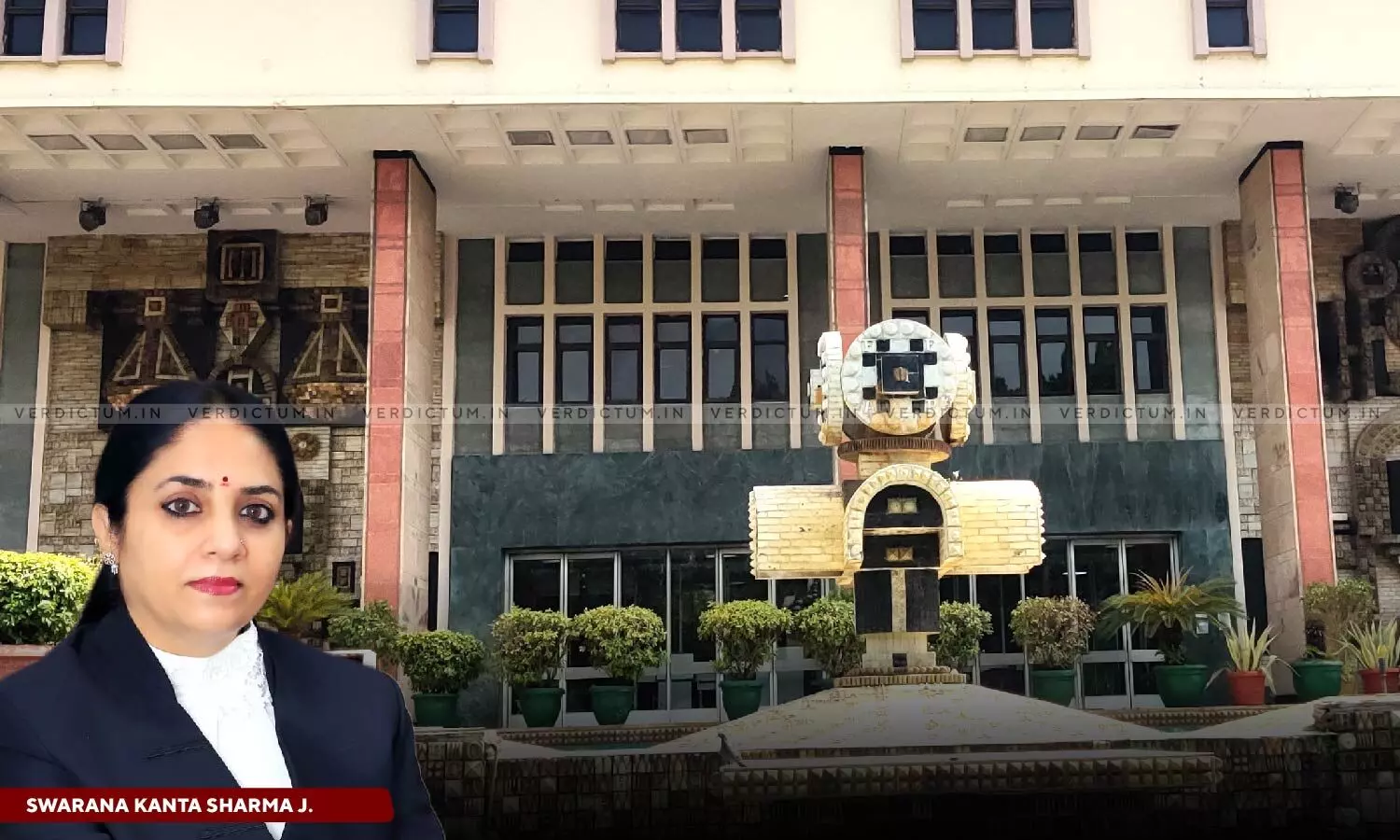
Dual-Language Approach Will Help To Prevent Non-Compliance Due To Language Barrier: Delhi HC Directs DoE To Issue Circulars & Notices In Hindi Also
 |
|The Delhi High Court directed the Directorate of Education to issue its circulars/notices in Hindi Language as the dual-linguistic approach will prevent future instances of non-compliance of filing valid income certificates on time.
The Court also directed the Directorate of Education (DoE) to upload videos explaining the process of applying for admission under the Economically Weaker Sections (EWS) category, which should also incorporate the mandate of filing a valid income certificate and as to what a valid income certificate meant.
A Single Bench of Justice Swarana Kanta Sharma observed, “To ensure that all parents, regardless of their educational background or linguistic proficiency, have equal access to crucial information, it is necessary that such notices are also issued in Hindi, which is widely spoken and understood by a large segment of the population. This dual-language approach will help to prevent future instances of non-compliance due to language barriers and ensure that the rights and opportunities available under the law are accessible to all citizens, particularly those from disadvantaged backgrounds.”
Advocate Swathi Sukumar appeared for the petitioner, while ASC Karn Bhardwaj represented the respondents.
The petitioners contested the denial of admission to the petitioner’s child in the Nursery/Pre-school Class at Indraprastha World School, despite being granted admission by computerised draw of lots.
The petitioner sought the Court's directions under Article 226 of the Constitution for a writ directing the respondents, including the Directorate of Education (DoE) and the concerned school, to admit the child under the EWS category for the academic session 2024-25. The petitioner argued that the school’s refusal to accept a renewed income certificate and the denial of admission were violative of the fundamental rights under Articles 14, 15, 16, and 21A of the Constitution, as well as statutory provisions of the Right to Education (RTE) Act.
The Court had to decide whether non-filing of the income certificate, due to its lack of validity at the time of applying for the online admission process can justifiably result in the rejection of the allotment of school for admission under the EWS category.
The petitioner argued that the renewed income certificate should be considered valid for the admission process as they belonged to a disadvantaged and less educated section, and were unaware of the certificate's expiration.
The Court noted that the circular issued by DoE specifically provided that the income certificate had to be valid on the date of applying for admission under the EWS/DG category.
Therefore, the Court held, “Considering the aforesaid, this Court is of the opinion that in view of the Circular, the petitioner has failed to produce a valid income certificate to the school which is a mandatory requirement and pre-requisite for applying for admission under the EWS category.”
However, the Court observed that the parents involved in the case belonged to the economically weaker section and were not well-educated. “They are often unaware of the specific requirements mandated by the DoE regarding the validity of an income certificate and the importance of uploading and producing valid income certificate as on the date of applying for such admission. The situation is exacerbated by their limited understanding of the English language and lack of awareness about this strict mandate regarding validity of income certificate,” the Court remarked.
The Court reiterated the settled position of law on the need for removing language barriers to enable the common community members to enjoy the fruits of welfare legislation.
Noting that the notifications were issued only in the English language, the Court directed, “It is necessary that the notices/circulars issued by the Directorate of Education should not be restricted to the English language alone which are meant for admissions under EWS category, specifically those which lay down the guidelines and the mandatory documents etc.”
Consequently, the Court stated that videos on the said subject should be prepared with a “dual-linguistic approach, i.e. both in Hindi and English and any other Indian language.”
Accordingly, the High Court disposed of the petition.
Cause Title: Master Harmanpreet Singh v. Directorate Of Education & Anr. (Neutral Citation: 2024:DHC:6694)
Petitioner: Advocates Swathi Sukumar, Naveen Nagarjuna, Rishubh Agarwal and Ritik Raghuwanshi
Respondents: ASC Karn Bhardwaj; Advocates Shubham Singh, Rajat Gaba, Saurabh Dahiya, Kamal Gupta, Tripti Gupta, Sparsh Aggarwal, Karan Chaudhary and Yosha Dutt